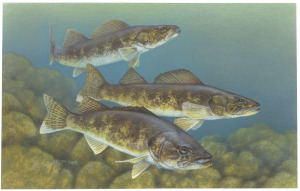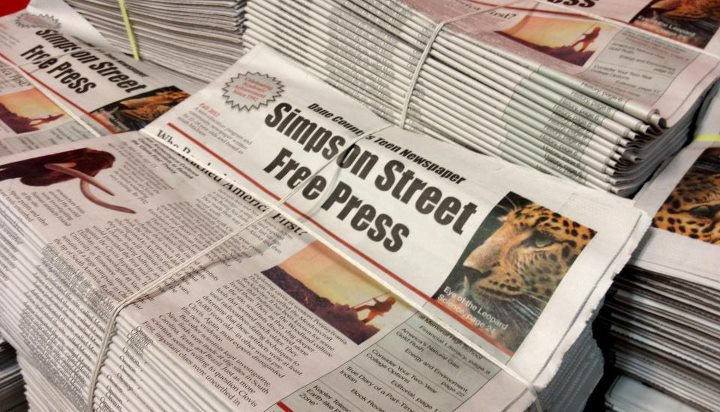
Recreational fishing brings at least two-billion dollars to the Wisconsin economy each year. Much of this economic activity is due to the popularity of the walleye. This fish has a long history with Wisconsin and its people.
Walleye fishing in Wisconsin dates back to Native American fisherman who counted on it as a major part of their diet. The walleye, of course, still plays a major role in our state. Walleye is a common and popular meal in many Wisconsin restaurants. The species also draws professional fishing competitions to our area.
But, in the last 20 years, something has changed. Wisconsin’s walleye population might be in big trouble.
Scientists don't know what’s causing the problem, but walleye populations are decreasing dramatically. Some researchers believe that climate change is a driving factor.
Ideally, walleyes live in lakes that have low-light, murky water and limited vegetation. Since 1980, the average lake temperature in Wisconsin has risen by 1.5 degrees Fahrenheit, making it harder for walleyes to reproduce naturally. While harmful to walleyes, however, these changes are beneficial for a different type of game fish—the popular largemouth bass.
But growing numbers of largemouth bass pose a threat to the walleye. Scientists cite two possible reasons. Either it's because the bass eat large numbers of young walleye, or the bass have been eating the food sources walleyes depend on.
Either way, whenever the bass population increases, the walleye population decreases. The reason largemouth bass are invading walleye habitat is because of climate change, which makes the water different and more appealing to bass. Wisconsin’s water is getting warmer, clearer, and sustaining more plant growth. It’s the opposite of what the walleye species needs.
Because of the importance of the walleye to our state, scientists are concerned. And they’re working hard to keep walleye populations from dwindling even more. One strategy is stocking--putting more walleye into lakes to boost reproduction.
Most experts believe it will take a great deal of effort from many different sources to preserve one of our state's natural treasures.
[Sources:
Wisconsin Public Radio
;
Wisconsin Historical Society; Madison.com
]

